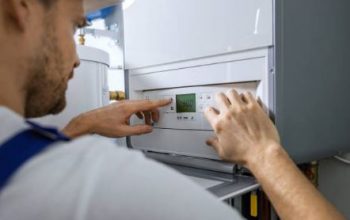It might seem like the selling price of a new house is never as clear-cut as you might anticipate when you’re looking to buy one. There are always additional fees and costs associated with the transaction on top of the price tag. Most home buyers expect to cover the down payment and closing costs, but buyers are also responsible for paying their prepaid costs, or “prepaid.”
Despite lenders’ best efforts to break down each cost mentioned in the loan estimate and mortgage disclosure documents, prepaid costs may be a surprise to buyers who are unfamiliar with these documents. Despite their similarities, prepaid costs, closing costs, and escrow are ultimately three different types of business. Prepaid costs are sometimes confused with these two types of expenses.
We’ll define prepaid costs in the context of home purchases and provide you with advice on what to anticipate in your final transaction to spare you from unnecessary buyer stress.
Table of Contents
What Are Prepaid Costs?
Initial escrow deposits, homeowners insurance premiums, real estate property taxes, and mortgage interest are some of the expenses that can be prepaid when purchasing a home. These expenses are distinct from your closing expenses. These are typically described by mortgage companies in your mortgage loan estimate document.
Prepaids are upfront cash payments made prior to your down payment for a mortgage, as the name suggests. Prepaid costs are paid in full at closing and deposited into an escrow account to cover mortgage costs, which are ordinarily covered by monthly homeownership-related fees. When it’s time to make these payments, the lender will deduct the necessary funds from the escrow account, so you won’t have to shell out any extra money.
Which Prepaid Costs Will Be Included in the Mortgage?
Prepaid Insurance and Taxes
Taxes and insurance prepayments are two typical prepaid expenses covered by the mortgage. At closing, the homeowner’s insurance is typically collected and paid for six months to a full year. Your mortgage lender will also request that you pay property taxes in addition to the pre-paid homeowners insurance.
The amount that will be collected is up to the lender, but this prepaid sum will be deposited into an escrow account and serve as a safety net for you to pay your future bills.
Prepaid Interest
Another prepaid expense included in the mortgage is mortgage interest. No matter what day of the month you close, the lender will have at least 30 days to enter your information in the system and issue your first statement because it is collected as a prepaid expense that can be applied to the first mortgage payment.
The required amount of interest may change, though, depending on what day of the month you close. For instance, some homebuyers might prefer to close at the end of the month so that less interest will have accumulated before your first monthly mortgage payment.
Initial Escrow Payment at Closing
The last prepaid expense you should anticipate having to be paid out of pocket is the initial escrow deposit. The cash deposited with the lender as the initial escrow payment is what will be used to cover future property taxes and homeowners insurance. To find out how much your deposit will cost and whether one is even required, look at your lender’s requirements.
This first escrow deposit will serve as an additional cushion in your escrow account, much like the pre-paid insurance and tax expenses did. The initial escrow deposit is in addition to the initial prepaid and will be kept in escrow even after the first payments start as a security measure. Mortgage insurance will be a distinct, upfront expense if you use escrow.

What’s the Difference Between Closing Costs and Prepaids?
Prepaid expenses, also known as prepaids, are costs that you would have to pay for regardless of how you choose to buy a home; you are simply paying for them in advance. Costs associated with closing your home are charges for services provided. Lawyers, title companies, lenders, appraisers, etc. were all those helpful people who guided you through each step of the process (even in the background).—get paid for your closing costs.
Regarding closing costs, we do have a piece of advice for homebuyers because you might be able to make small financial savings. In some cases, you might be able to persuade lenders to cover your closing costs or offer you better rates for the fees they levied. The seller might cover the closing costs in some circumstances. Finding the best deal never hurts, so always shop around.
However, prepaid closing costs are not subject to comparison shopping. They are a standard component of the home-buying process and you will be responsible for paying for them regardless.
Are Prepaids Related to Escrow?
The answer to the question, “What are prepaid costs when buying a home?” almost always mentions an escrow account. But it’s important to note that they are related, not identical, in this case. Simply put, an escrow account is a bank account your mortgage lender sets up to minimize risks and guarantee you won’t forget to make required prepaid payments. Your property taxes and insurance premiums will be deducted from your monthly mortgage payment at the beginning of each month. In this manner, your lender will pay those bills out of that account directly when they are due.
Final Thought
The selling price of your home or the final price tag on the closing date may seem to include prepaid costs, but you now have a clearer understanding of what these costs are and how to note them on your mortgage loan document. Do not be concerned about pre-paid expenses as you proceed with your home purchase!



